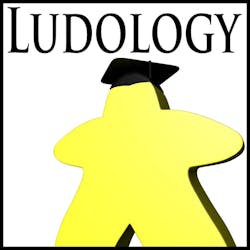As this question is from 2010 and many new versions have been released since, It seems worth compiling a list of versions and notable differences. This answer can then easily be edited by anyone as more version get released. Please anyone feel free to edit/update this. I have not covered strengths and weaknesses as this is completely subjective.
I will list for each map its player count, number of pieces players start with (or other equivalent), rules for drawing tickets, special rules, bonus scoring rules. If a rule is slightly different to base game (ie with the double routes or removing tickets from the game).
For any Special Rules I will list just “ferries, tunnels” or other brief description of special rules rather than explaining every special rule in full.
Ticket To Ride (2004)
Players : 2-5
Starting pieces: 45
Starting tickets: Draw 3 keep at least 2
Tickets during game : Draw 3 keep at least 1.
Special Rules : None
Bonus Scoring : 10 Points for longest route
Ticket To Ride: Europe (2005)
Players : 2-5
Starting pieces: 45
Starting tickets: Draw 1 Long Ticket and 3 Normal tickets keep at least 2. Untaken starting tickets are removed from the game.
Tickets during game : Draw 3 keep at least 1. Untaken tickets placed at bottom of deck.
Special Rules : Ferries. Tunnels.
Bonus Scoring : 10 Points for longest route
Ticket To Ride: Marklin (2006)
Players : 2-5
Starting pieces: 45
Starting tickets: Draw 4 keep at least 2. Choose how many to take from a long and short ticket deck
Tickets during game : Draw 4 keep at least 1. Choose how many to take from each deck
Special Rules : Passengers/merchandise. The +4 locomotive. Tickets linking to countries.
Bonus Scoring : 10 Points for most completed tickets.
Ticket To Ride: Switzerland (2007)
Players : 2-3
Starting pieces: 40
Starting tickets: Draw 5 keep at least 2. Untaken tickets removed from the game
Tickets during game : Draw 3 keep at least 1. Untaken tickets removed from the game
Special Rules : Locos are Tunnel Cards and no restrictions on taking them. Tunnels. Tickets linking countrys. Double routes can be taken 3 player.
Bonus Scoring : 10 Points for longest route..
Ticket To Ride: Nordic Countries (2007)
Players : 2-3
Starting pieces: 45
Starting tickets: Draw 5 keep at least 2. Untaken tickets removed from game.
Tickets during game : Draw 3 keep at least 1. Untaken tickets removed from game.
Special Rules : No restriction on taking face up locomotives, Tunnels, Ferries, Double routes can be used with 3 players. Can use 4 cards as a loco on a specific route.
Bonus Scoring : 10 Points for most completed tickets.
Ticket To Ride: Legendary Asia (2011)
Players : 2-5
Starting pieces: 45
Starting tickets: Draw 1 Long Ticket and 3 Normal tickets keep at least 2. Untaken starting tickets are removed from the game.
Tickets during game : Draw 3 keep at least 1. untaken tickets to bottom of deck.
Special Rules : Ferries, Mountains
Bonus Scoring : 10 points for most connected cities.
Ticket To Ride: Team Asia (2011)
Players : 2-6 playing in pairs
Starting pieces: 27 trains per player matching colour of teammate.
Starting tickets: Draw 5 keep at least 3 per player.
Tickets during game : Draw 4 keep at least 1.
Special Rules : Team play with a mixture of shared/private wagons/tickets.
Bonus Scoring : 10 points for team with longest route. 10 points for team with most completed tickets.
Ticket To Ride: India (2011)
Players : 2-4
Starting pieces: 45
Starting tickets: Draw 4 keep at least 2.
Tickets during game : Draw 3 keep at least 1.
Special Rules : Ferries
Bonus Scoring : 10 point for longest route. Mandala Ticket Bonuses (completing a ticket twice with 2 separate routes).
Ticket To Ride: Deutschland (2012)
Players : 2-4
Starting pieces: 45
Starting tickets: Draw 4 keep at least 2.
Tickets during game : Draw 3 keep at least 1.
Special Rules : Ferries
Bonus Scoring : 10 point for longest route. Mandala Ticket Bonuses (completing a ticket twice with 2 separate routes).
Ticket To Ride: The Heart Of Africa (2012)
Players : 2-5
Starting pieces: 45
Starting tickets: Draw 4 keep at least 2.
Tickets during game : Draw 4 keep at least 1.
Special Rules : Terrain Cards allowing to double points when claiming a route.
Bonus Scoring : 10 Points for most completed tickets.
Ticket To Ride: Nederland (2013)
Players : 2-5
Starting pieces: 40
Starting tickets: Draw 5 keep at least 3.
Tickets during game : Draw 4 keep at least 1. untaken tickets form a FACE UP discard pile.
Special Rules : Double routes in use even at 2 players. Toll Routes. A neutral player for 2 player games.
Bonus Scoring : variable bonus points for remaining Toll Tokens.
Ticket To Ride: United Kingdom (2015)
Players : 2-4
Starting pieces: 35
Starting tickets: Draw 5 keep at least 3.
Tickets during game : Draw 3 keep at least 1.
Special Rules : Players start with a locomotive. any 4 cards can be used as a locomotive. Face up wagons are not wiped if 3 are locomotives. Ferries. Technology cards (purchased with Locomotives)
Bonus Scoring : No regular end game bonuses but some technologies provide end game bonuses.
Ticket To Ride: Pennsylvania (2015)
Players : 2-5
Starting pieces: 45
Starting tickets: Draw 5 keep at least 3.
Tickets during game : Draw 4 keep at least 1.
Special Rules : Ferries. Stocks and Shares, special 2 player rules
Bonus Scoring : 15 points for most completed tickets. Points for stocks and shares.
Ticket To Ride: Poland (2019)
Players : 2-4
Starting pieces: 35
Starting tickets: Draw 4 keep at least 2.
Tickets during game : Draw 2 keep at least 1.
Special Rules : Multi routes to countries usual able in all player counts. Other double routes follow usual rules
Bonus Scoring : Points collected during game for linking countries. No tickets go to countries.
Ticket To Ride: First Journey US(2017) / Europe 2018
Players : 2-4
Starting pieces: 20
Starting tickets: draw 2 keep both
Special Rules : These versions have simplified rules and a different maps. Players take wagons from top of deck. There is no face up selection. Each completed ticket is worth 1 point. First to 6 points wins. Players reveal completed tickets during the same and are instantly replaced. Players can take an action to discard both their unfinished tickets and draw new ones.
Bonus Scoring : A bonus point for connecting east/west sides of board
Ticket To Ride: Old West (2017)
Players : 2-6
Starting pieces: 40
Starting tickets: Draw 5 keep at least 3.
Tickets during game : Draw 4 keep at least 1.
Special Rules : Ferries. Claimed routes MUST connect to your existing claimed routes. Control Of cities with city markers. Optional Alvin the Alien. (with different rules to Alvin and Dexter expansion)
Bonus Scoring : 15 points for most completed tickets. 10 points for longest route.
Ticket To Ride: Rails And Sails (2018)
Players : 2-5
Starting pieces: 20 trains and 40 ships suggestion but players can vary this.
Starting tickets: Draw 5 keep at least 3.
Tickets during game : Draw 4 keep at least 1.
Special Rules : Two separate piece types and cards for trains and ships. Piece exchanging. harbours, tour tickets.
Bonus Scoring : Points given for routes connected to players harbours.
Ticket To Ride: Great Lakes (2018)
Players : 2-5
Starting pieces: 22 trains and 28 ships suggestion but players can vary this.
Starting tickets: Draw 5 keep at least 3.
Tickets during game : Draw 4 keep at least 1.
Special Rules : Two separate piece types and cards for trains and ships. Piece exchanging. harbours.
Bonus Scoring : Points given for routes connected to players harbours.
Ticket To Ride: New York (2018)
Players : 2-4
Starting pieces: 15
Starting tickets: Draw 2 keep at least 1.
Tickets during game : Draw 2 keep at least 1.
Special Rules : Double Routes claimable in a 3 player game.
Bonus Scoring : Points for connected tourist destinations.
Ticket To Ride: Japan (2019)
Players : 2-5
Starting pieces: 20 per player (plus 16 shared Bullet Train markers)
Starting tickets: Draw 4 keep at least 2.
Tickets during game : Draw 3 keep at least 1.
Special Rules : Bullet Train useable by all players. Game end triggers in usual way and if 2 or fewer bullet train pieces are left in supply.
Bonus Scoring : variable bonus point for contributing to Bullet train.
Ticket To Ride: Italy (2019)
Players : 2-5
Starting pieces: 45
Starting tickets: Draw 5 keep at least 3.
Tickets during game : Draw 4 keep at least 1.
Special Rules : Tickets to zones. Ferry card
Bonus Scoring : Points for connecting different zones to your network.
Bonus Scoring : variable bonus point for contributing to Bullet train.
Ticket To Ride: Amsterdam (2019)
Players : 2-4
Starting pieces: 17
Starting tickets: Draw 2 keep at least 1.
Tickets during game : Draw 2 keep at least 1.
Special Rules : Double Routes claimable in a 3 player game. some routes give merchandise cards.
Bonus Scoring : Points for majorities of merchandise cards.
Ticket To Ride: Stay At Home (2020)
Players : 2-4
Starting pieces: 32
Starting tickets: draw 2 personal “Family” tickets and 2 from normal deck. Keep at least 2. Untaken tickets removed from the game
Tickets during game : Draw 3 keep at least 1.
Special Rules : Double routes used in 3 players games. tickets personal to players ‘character’. ‘Family routes’ which can be built in sections and used by multiple players.
Bonus Scoring : No end game bonus points


